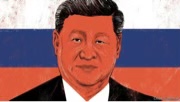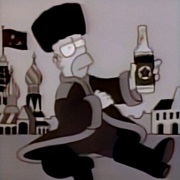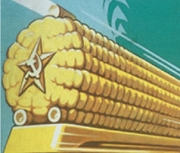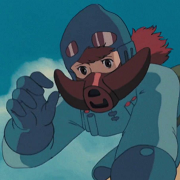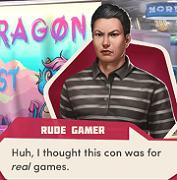|
look it was cool. Very superfluous and borderline useless but very cool.
|
|
|
|

|
| # ? May 20, 2024 22:21 |
|
so for HOI4, is there any point to using "planning feature" where you designate attack plan and the A.I executes it for you? Cuz it's a confusing clusterfuck and I seem to be winning a lot more just by clicking my units forward while the A.I would randomly shuffle them back and force leaving provinces open
|
|
|
|
you get planning bonuses if you use them. Its really good too.
|
|
|
|
Typo posted:so for HOI4, is there any point to using "planning feature" where you designate attack plan and the A.I executes it for you? you get planning bonuses that give a boost to your attack. you dont actually need to press the launch plan button and can just manually launch attacks and get the bonus but you do need to draw an offensive line somewhere
|
|
|
|
tbf its immensely satisfying to watch a frontline disintegrate after you have it all prepped.
|
|
|
|
The Hearts of Iron games are bad. The only passable one was 2's weird symmetrical multi-player scenario because it was designed to be fun.
|
|
|
|
Hearts of Iron 4 is the way it is because of all the feature creep and expansions because Paradox needs to milk money. But also because started with Europa Universalis 4 and then slathered it in World War 2 aesthetics when trying to make the game.
|
|
|
|
i do hope they make EU5 sometime soon so i can play that specific time period again. i checked out and missed 20 expansions for 4 and now i dont know what the gently caress to do
|
|
|
|
Raskolnikov38 posted:i do hope they make EU5 sometime soon so i can play that specific time period again. i checked out and missed 20 expansions for 4 and now i dont know what the gently caress to do piracy
|
|
|
|
The Early Modern period really is the natural home for grand strategy games imo
|
|
|
|
Cuttlefush posted:piracy its more that there are now too many things i have no idea how they work and it eventually turns me to give up every time i try to learn
|
|
|
|
You can't learn everything about EUIV because they keep adding bespoke hand crafted mechanics for one random province nation in every update. Your only real choice is to just play the one tag you're interested in and learning how it works as you play. None of that might be applicable to another tag should you decide to play something else.
|
|
|
|
Lostconfused posted:You can't learn everything about EUIV because they keep adding bespoke hand crafted mechanics for one random province nation in every update. yeah that owns though. i dont' play Eu nearly as much as HoI or CK or Vicky3 but when im in the mood for its particular map painting it always hits the spot. Honestly all the paradox games are pretty good right now, for all their particular foibles, people bitch about them in proportion to their devotion
|
|
|
|
it was very funny playing a non-hre nation, learning that aggressive expansion doesnt matter, and then playing an hre nation
|
|
|
|
https://www.youtube.com/watch?v=ZYspPUsLIE8 war thunder made a five minute short featuring subs and maritime patrol aircraft
|
|
|
|
the focus tree alt history sandbox stuff in hoi4 is entirely a result of kaiserreich being as popular as it was in hoi2. that was a mod specifically designed so that pretty much any major power could switch ideologies and factions, and so hoi4 took the same path
|
|
|
|
What would happen if Russia invaded Finland? I went to a giant war game in London to find outquote:Bush House in London is a narrow, imposing building that was constructed about a century ago from rugged limestone, which helped it survive a nearby missile strike during the second world war. It’s the sort of place you might choose to take shelter at the outset of a third world war and, fittingly, it is where dozens of Nato employees, as well as representatives of various global militaries, have gathered on a sunny summer afternoon to simulate the end of everything. In two vast top-floor conference rooms, an ambitious game – a war game, they call it – has been devised by academics from the department of war studies at King’s College London. Dr David Banks, the university’s war-gaming specialist, has invited me along to watch an imaginary conflict break out.
|
|
|
|

|
|
|
|
Kaiserreich is hilarious because the developers obviously understand left wing politics in the Western world really well, which is why all of the post-communist-revolution countries in the West have eleventy different flavours of socialist party representing the entirety of the red portion of the spectrum of natural light. Also Oswald Mosley is a “maximalist” socialist in their reality
|
|
|
|
Those so called professional wargames scan like total bullshit to me. Firstly its playing a boardgame without being allowed to read the manual. Im sure this will be explained as realistic, but the thing is that game definitely has a manual, which is far from realistic. Secondly its just assumptions stacked on top of assumptions, firstly by the designers, and then by the players. "Its what the real Russians would do" lol and further lmao. Thirdly it is entirely unclear what any of this poo poo is supposed to measure or demonstrate. The journalist, rightly, focuses a lot on the social dynamics of the Russian command. But then, if you had ran the exact same game with the exact same people but picked different rules you couldve had wildly different outcomes. So what, really is the lesson here? Even in the context of the game, what exactly are actionable takeaways for the participants? Orange Devil has issued a correction as of 11:14 on Oct 2, 2023 |
|
|
|
Endman posted:Kaiserreich is hilarious because the developers obviously understand left wing politics in the Western world really well, which is why all of the post-communist-revolution countries in the West have eleventy different flavours of socialist party representing the entirety of the red portion of the spectrum of natural light. Kaiserreich has a lot of baggage from its earliest versions which were very clearly made by people more interested in literature than history or politics, which is why people like Orwell and TE Lawrence got weirdly prominent roles and there's ancient events about Tolkien and so on. It was also very clearly done by people who bought into horseshoe theory and the historical 'syndicalists become fascists' stuff was mixed up with 'communists are the same as fascists'. From what I've seen the more recent developments have rowed back on this to some degree but there's a lot of inertia there
|
|
|
|
Orange Devil posted:So what, really is the lesson here? I tend to broadly agree, and there's an element of STDH in the story, but something that stood out to me was that even in a situation where the exercise is being done under somewhat controlled circumstances, and even when it's just Westerners bringing in their own assumptions against other Westerners, they still can't help but escalate all the way to nuclear armageddon the actionable takeaway here would be for a Chinese or Russian strategist to look at this and conclude that the Anglo-Americans and their lapdogs are going to end the world if you let them
|
|
|
|
gradenko_2000 posted:I tend to broadly agree, and there's an element of STDH in the story, but something that stood out to me was that even in a situation where the exercise is being done under somewhat controlled circumstances, and even when it's just Westerners bringing in their own assumptions against other Westerners, they still can't help but escalate all the way to nuclear armageddon Remembering that Douglas MacArthur and Curtis LeMay existed, that last part sounds completely plausible to me
|
|
|
|
Orange Devil posted:Brigade level grand strategy lol. Supreme Ruler does this with battalions, and with no way to actually organize them. Orange Devil posted:Those so called professional wargames scan like total bullshit to me. Firstly its playing a boardgame without being allowed to read the manual. Im sure this will be explained as realistic, but the thing is that game definitely has a manual, which is far from realistic. They're mostly planning exercises so people can develop the skills of staff work. The actual scenarios, whatever, mostly it's about testing doctrine. Does everyone follow doctrine predictably so actions are coordinated even if communications break down? Does doctrine help rapid planning in a fluid situation? How quickly are orders written and passed along? How are orders interpreted? etc. In one of the Japanese war games before iirc the DEI campaign, there was a physical fight during a war game where a carrier air group commander put one of the task force commanders in a headlock. Frosted Flake has issued a correction as of 12:17 on Oct 2, 2023 |
|
|
|
TBH I always wanted to do one of those big wargames with all the roles
|
|
|
|
The Millennium Challenge gets a lot of controversy over the allegation of the first-run results getting thrown out after Gen Ripper's shenanigans, but the IJN had their own proto-Millennium Challenge in that when they gamed-out the Midway operation, Nagumo's carrier force was virtually attacked from the northeast, just as Spruance historically would, resulting in severe damage to the Kido Butai, but they ignored that result and simply ran the plan again, on the basis that the Americans couldn't possibly come from that quadrant.
|
|
|
|
The Chad Jihad posted:TBH I always wanted to do one of those big wargames with all the roles The Wargames Exhibit at the Canadian War Museum is on right now if you want to get a feel for it. There's some discussion about hosting an exercise as an event because of the amount of feedback like that, and given how closely involved CFC and CADTC are in it, that might be a great way to build on the exhibition's success. gradenko_2000 posted:The Millennium Challenge gets a lot of controversy over the allegation of the first-run results getting thrown out after Gen Ripper's shenanigans, but the IJN had their own proto-Millennium Challenge in that when they gamed-out the Midway operation, Nagumo's carrier force was virtually attacked from the northeast, just as Spruance historically would, resulting in severe damage to the Kido Butai, but they ignored that result and simply ran the plan again, on the basis that the Americans couldn't possibly come from that quadrant. Was that the one with the brawl I'm thinking of? Check out A Game of Birds and Wolves: The Ingenious Young Women Whose Secret Board Game Helped Win World War II if you haven't already By 1941, Winston Churchill had come to believe that the outcome of World War II rested on the battle for the Atlantic. A grand strategy game was devised by Captain Gilbert Roberts and a group of ten Wrens (members of the Women's Royal Naval Service) assigned to his team in an attempt to reveal the tactics behind the vicious success of the German U-boats. Played on a linoleum floor divided into painted squares, it required model ships to be moved across a make-believe ocean in a manner reminiscent of the childhood game, Battleship. Through play, the designers developed "Operation Raspberry," a counter-maneuver that helped turn the tide of World War II. Combining vibrant novelistic storytelling with extensive research, interviews, and previously unpublished accounts, Simon Parkin describes for the first time the role that women played in developing the Allied strategy that, in the words of one admiral, "contributed in no small measure to the final defeat of Germany." Rich with unforgettable cinematic detail and larger-than-life characters, A Game of Birds and Wolves is a heart-wrenching tale of ingenuity, dedication, perseverance, and love, bringing to life the imagination and sacrifice required to defeat the Nazis at sea. 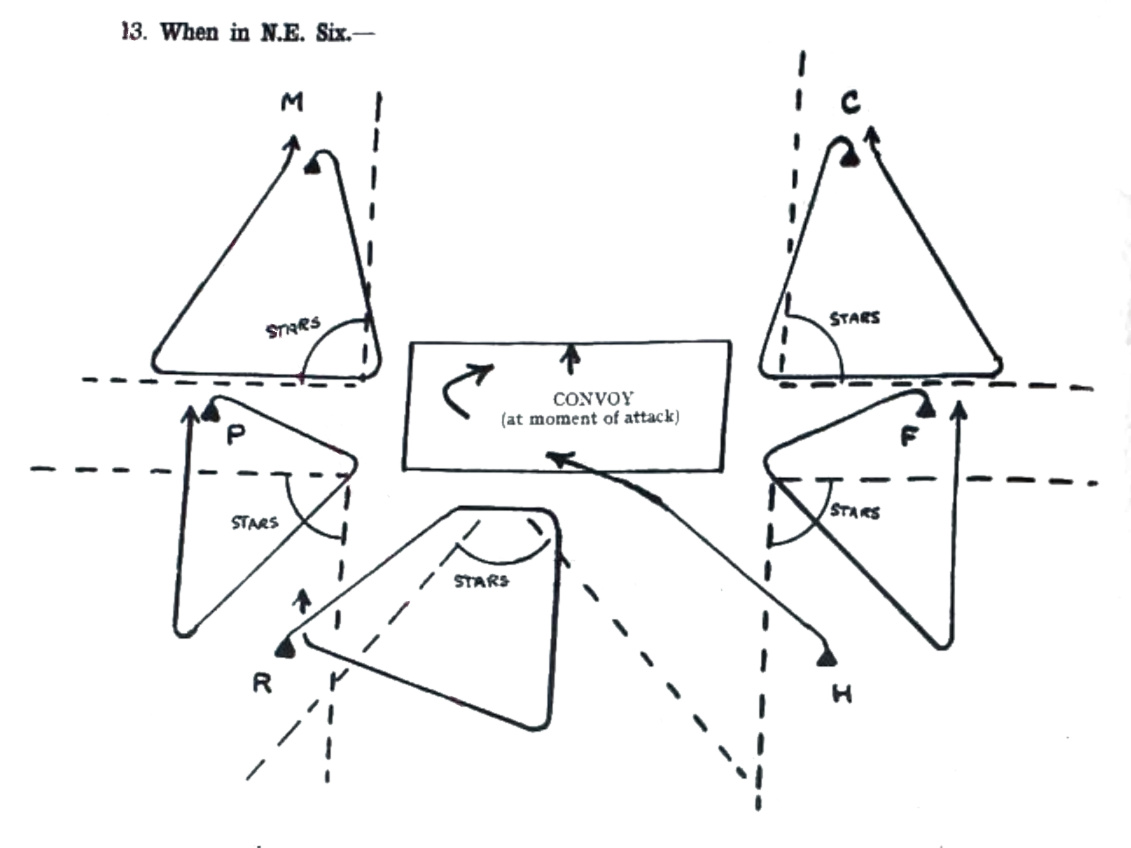 It's about the Western Approaches Tactical Unit and how they developed all sorts of modern ASW techniques through playing a giant game. It's how they discovered U-Boats were making surface night attacks, for example. There was no evidence, at the time, but the outcome of their games suggested that it was happening. It turned out that they were right, it's how U-Boat aces like Günther Prien were making their attacks, and the Allied countermeasures helped win the Battle of the Atlantic. 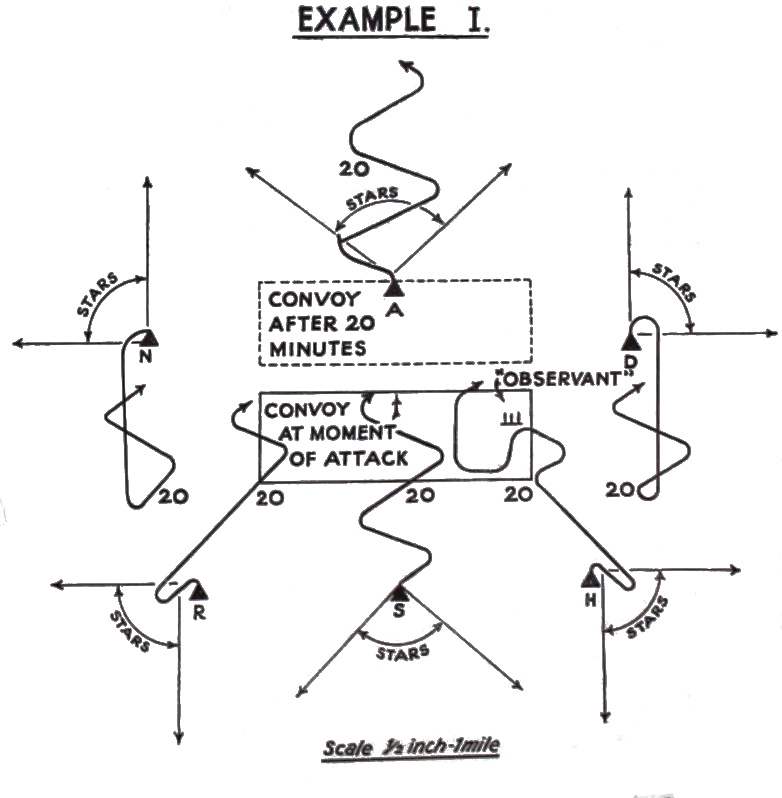 
Frosted Flake has issued a correction as of 13:14 on Oct 2, 2023 |
|
|
|
Orange Devil posted:Those so called professional wargames scan like total bullshit to me. Firstly its playing a boardgame without being allowed to read the manual. Im sure this will be explained as realistic, but the thing is that game definitely has a manual, which is far from realistic. The take awaynfrom this is that mid level Western functionaries crave nuclear death. I remember people reporting about these types of events back during the Bush administration and they always ended in nuclear war
|
|
|
|
Endman posted:Also Oswald Mosley is a “maximalist” socialist in their reality Yes all the real life fascists are socialists in Kaiserreich, unless they're national populists(socialists).
|
|
|
|
KomradeX posted:The take awaynfrom this is that mid level Western functionaries crave nuclear death. I remember people reporting about these types of events back during the Bush administration and they always ended in nuclear war It's because, particularly when the media is there, demonstrating that you're a bold, risk taking, go-getter is a smarter career move than playing conservatively and "losing". That was sort of the genesis of the Schlieffen Plan. During German war games and staff exercises, going to war with both Russia and France led to all of these gloomy, pessimistic, defensive plans. In comes von Schlieffen who creates this audacious plan that could totally alter the strategic situation (if it worked), and he's celebrated for it immediately. It wasn't even really a fully developed plan, "(Later historians) judged that the physical constraints of German, Belgian and French railways and the Belgian and northern French road networks made it impossible to move enough troops far enough and fast enough for them to fight a decisive battle if the French retreated from the frontier. " but the fact that it was idk, a bold and unexpected way to achieve victory, transcended the actual physical limitations that staff planning is supposed to account for. As they say, "When a measure becomes a target, it ceases to be a good measure". War games that have politicians or the media involved always end up in officers trying to make a name for themselves with razzle dazzle, because it's staff planning in the peacetime army, this is their vehicle to do it.
|
|
|
|
Frosted Flake posted:Supreme Ruler does this with battalions, and with no way to actually organize them. Then you wouldnt want to randomize rules and instead have everyone perform their actual role to see if they suck though.
|
|
|
|
Orange Devil posted:Those so called professional wargames scan like total bullshit to me. This sounds like SUSD playing the Watch the Skies megagame, but less educational and less competent.
|
|
|
|
gradenko_2000 posted:The Millennium Challenge gets a lot of controversy over the allegation of the first-run results getting thrown out after Gen Ripper's shenanigans, but the IJN had their own proto-Millennium Challenge in that when they gamed-out the Midway operation, Nagumo's carrier force was virtually attacked from the northeast, just as Spruance historically would, resulting in severe damage to the Kido Butai, but they ignored that result and simply ran the plan again, on the basis that the Americans couldn't possibly come from that quadrant. the officer in charge of the wargame literally just changed the dice rolls that said the Japanese carriers got sunk by the attacking airplanes later on he resurrected sunk Japanese ships for future operations the IJN officer playing the party of the Americans protested about how that's BS and the games are rigged but the dude in charge was just like nah deal with it bro lol Typo has issued a correction as of 14:57 on Oct 2, 2023 |
|
|
|
Orange Devil posted:Then you wouldnt want to randomize rules and instead have everyone perform their actual role to see if they suck though. Getting to be in charge or show the wide range of your dazzling skills to the press and your peers is part of that as well. "Would I rather be a planner on Bde artillery staff or a 
|
|
|
|
Also there's the fact that it's a game with a win condition. Don't know about the rest of y'all but when I play a game I try to maximize my chance to win using all available options within the rules. So if I'm playing Twilight Struggle and it's the late era and I'm behind on points you bet your rear end I'm going to make risky plays that could easily force me in a Defcon trap (leading to nuclear war and me losing) because getting lucky and avoiding those while having my risks pay off is my only remaining chance to win, and also I'm not actually risking billions of lives.
Orange Devil has issued a correction as of 15:15 on Oct 2, 2023 |
|
|
|
I have bad news about war being a game.
|
|
|
|
Orange Devil posted:Also there's the fact that it's a game with a win condition. Don't know about the rest of y'all but when I play a game I try to maximize my chance to win using all available options within the tules. So if I'm playing Twilight Struggle and it's the late era and I'm behind on points you bet your rear end I'm going to make risky plays that could easily force me in a Defcon trap (leading to nuclear war and me losing) because getting lucky and avoiding those while having my risks pay off is my only remaining chance to win, and also I'm not actually risking billions of lives. No, I liked doing the artillery staffwork the way I really would, because I am not a power gamer, but a role-player. It's why I play on the 24/7 Immersive Brigade Headquarters Life RPG server in GTA Online.
|
|
|
|
Frosted Flake posted:The Wargames Exhibit at the Canadian War Museum is on right now if you want to get a feel for it. There's some discussion about hosting an exercise as an event because of the amount of feedback like that, and given how closely involved CFC and CADTC are in it, that might be a great way to build on the exhibition's success. I wasn't too impressed with the war games exhibit but I think a hosted exercise event would be really nice to show how those games can be used for more than mere entertainment.
|
|
|
|
Orange Devil posted:Also there's the fact that it's a game with a win condition. Don't know about the rest of y'all but when I play a game I try to maximize my chance to win using all available options within the rules. So if I'm playing Twilight Struggle and it's the late era and I'm behind on points you bet your rear end I'm going to make risky plays that could easily force me in a Defcon trap (leading to nuclear war and me losing) because getting lucky and avoiding those while having my risks pay off is my only remaining chance to win, and also I'm not actually risking billions of lives. If they wanted realistic results they should've promised to kill everyone in the room if they crossed the escalation threshold. Edit: Or break all their smartphones, probably achieves the same result.
|
|
|
|

|
| # ? May 20, 2024 22:21 |
|
do military war games also use hexes and unit chits the way our shut in nerd war games do
|
|
|



